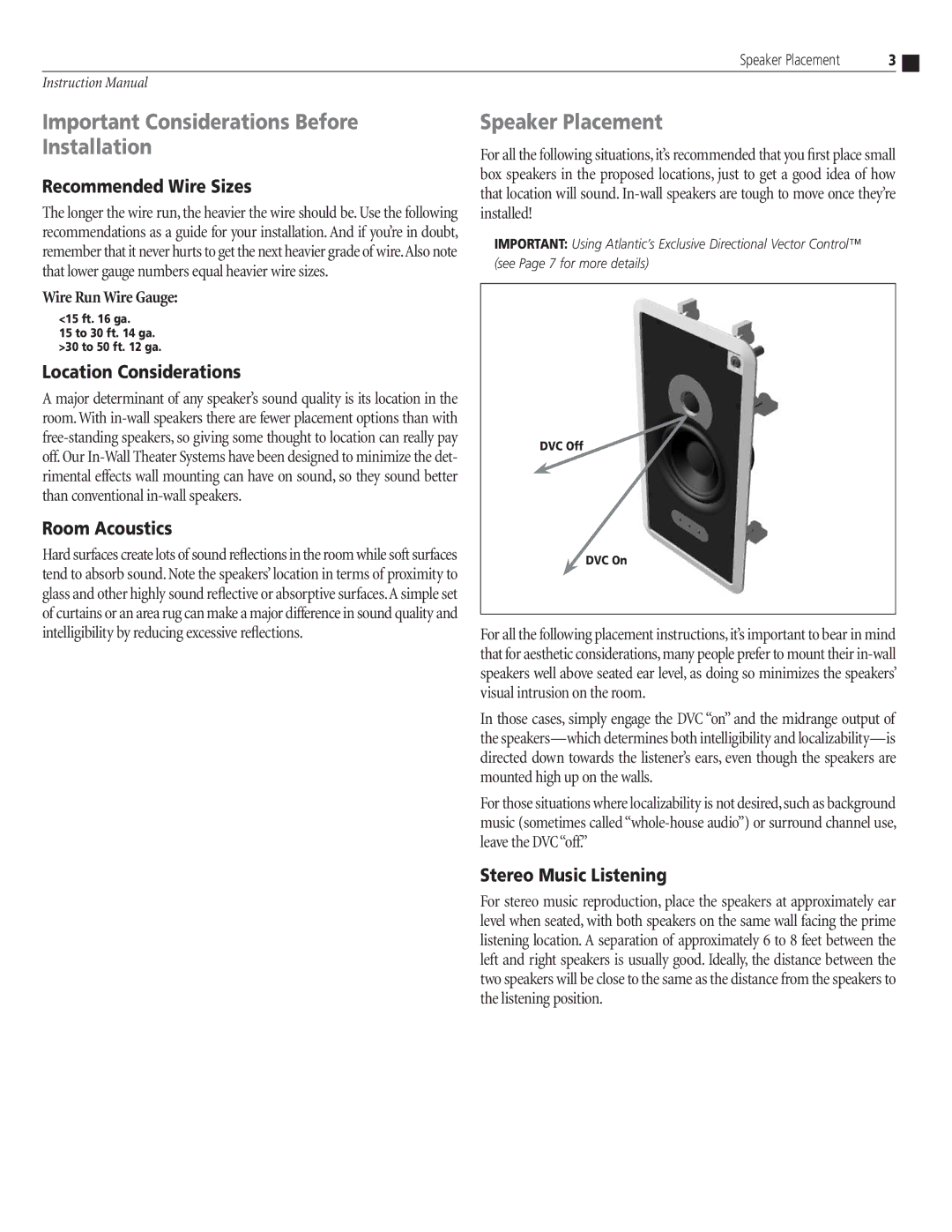IWTS-14 LCR, IWTS-7 LCR specifications
Atlantic Technology has long been a key player in the world of high-performance home audio systems, and their IWTS-14 LCR and IWTS-7 LCR in-wall speakers stand as prime examples of innovation and quality in their lineup. Designed for audiophiles seeking a blend of aesthetic appeal and superior sound, these speakers integrate seamlessly into modern living spaces while delivering impressive audio performance.The IWTS-14 LCR is a three-way in-wall speaker that excels in providing a true surround sound experience. It features a dual 5.25-inch woofers, a 4-inch midrange driver, and a 1-inch soft dome tweeter, ensuring that both highs and lows are faithfully reproduced. This speaker is engineered to handle a wide frequency response, allowing music and movie audio to be conveyed with nuance and clarity. Its design helps create a broad soundstage, making it ideal for both left-center-right configurations in home theaters, as well as standalone or distributed audio setups.
On the other hand, the IWTS-7 LCR presents a slightly more compact alternative, making it an excellent choice for smaller spaces or where design considerations dictate less intrusive installations. This speaker employs a dual 5.25-inch woofers along with a 1-inch soft dome tweeter to deliver an impressive sound profile despite its smaller size. The IWTS-7 LCR maintains a robust performance across various audio genres, ensuring that users do not compromise on quality for space constraints.
Both models incorporate Atlantic Technology's advanced design features such as the patented Dynamic Balance driver technology, which minimizes distortion and enhances the speaker’s efficiency. Their low-profile grille designs allow for easy painting and customization, making these speakers blend effortlessly with any room decor.
Additionally, the IWTS series is equipped with a unique enclosure design that minimizes rear wave interference, resulting in clearer and more accurate sound reproduction. This innovation is particularly crucial for in-wall installations where space may limit standard speaker setups.
In summary, the Atlantic Technology IWTS-14 LCR and IWTS-7 LCR embody the marriage of form and function. With their quality components and intelligent engineering, these in-wall speakers excel in rendering powerful audio experiences suitable for any home theater or music listening environment. Their adaptability, aesthetic flexibility, and striking performance make them noteworthy options for homeowners looking to enhance their audio experience without compromising on decor.

